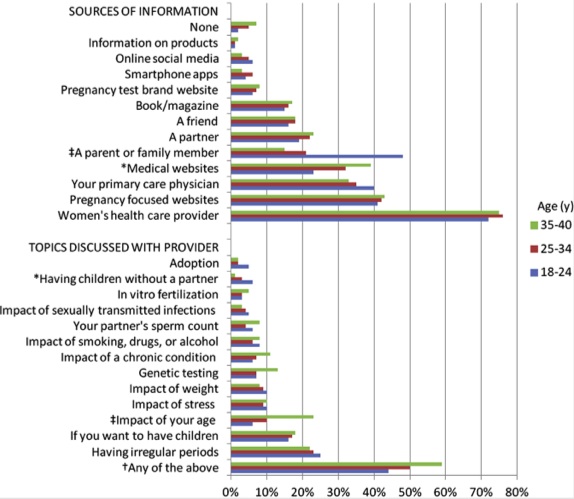 A little over 5 percent of women seek information about reproductive health from smartphone apps, while around 32 percent get information from medical websites, according to Yale University School of Medicine's online anonymized survey of 1,000 women ages 18 to 40, conducted in March 2013.
A little over 5 percent of women seek information about reproductive health from smartphone apps, while around 32 percent get information from medical websites, according to Yale University School of Medicine's online anonymized survey of 1,000 women ages 18 to 40, conducted in March 2013.
Manufacturers of First Response pregnancy test Church and Dwight funded the study.
The study, published in an issue of Fertility and Sterility, found that about 50 percent of reproductive-age women had never discussed their reproductive health with a medical provider and about 30 percent visited their reproductive health provider less than once a year or never. Of those surveyed, 75 percent said they used their health care provider as a source of information about reproductive health.
Forty percent of women expressed concern about their ability to conceive and 25 percent were unaware of the negative implications of sexually transmitted infections, obesity, smoking, or irregular menses on fertility.
Around 42 percent of women said they looked at pregnancy websites to find information. Within the group that used smartphone apps to find information, the 25 to 34 age group used smartphone apps more than the 18 to 24 age group and the 35 to 40 age group. A little over 4 percent of women also said they used social media as a source of information.
The survey said the sample population is generally representative of the US population of women in the reproductive age group by racial and ethnic distributions, household income, and marital status, but women in the sample have slightly higher education levels and might have been more inclined to use online sources, given that the survey was conducted online.
While the app market for reproductive health is not as crowded as the ones for other kinds of health tracking, such as the food or activity app market, many apps have recently come out to help women keep track of their fertility cycle and also provide women with reproductive health information.
Fertility app Glow uses algorithms, which learn from the data that users enter and personalizes fertility related facts based on the data for women looking to conceive.
“A good example is that skim milk is actually harmful to drink while trying to conceive,” CEO Mike Huang told MobiHealthNews in a recent interview. “If we saw that a user was drinking skim milk with her coffee, we could suggest that she swap out skim for whole milk.”
The company also announced in December 2013 that their app helped over 1,000 women conceive.
Another app company, Ovuline, raised $1.1 million in October to add a pregnancy feature to its fertility tracker. The company also uses machine learning algorithms to improve their app and offer users better information. At the time, CEO Paris Wallace told MobiHealthNews they have the 20 million data points that users have shared.
















